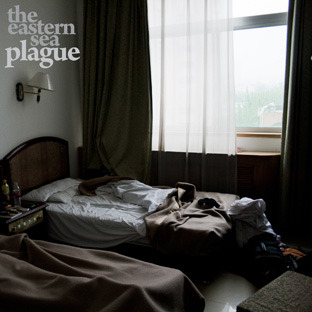Music
The Eastern Sea will get you with ‘Plague’

Plague
The Eastern Sea
Release Date: Jun 26, 12
- 1
- 2
- 3
- 4
- 5
- 6
- 7
- 8
- 9
- 10
It seems to make things mean a whole lot more when named for absurdist philosophers’ viewpoints. And knowing that now certainly gives Austin-based band The Eastern Sea a big pat on the back. Their sophomore album, Plague, is named for Camus‘ view of the human condition, as conceptualized by frontman Matt Hines early last year. After losing an initial recording space, two band members, the producer’s house, and a whole lot of time, the album finally gets its closure. As a derivative of the prog genre, The Eastern Sea makes for a new sound in rock that’s both humbled and unabashedly forward with its intentions. Although at points I wondered if I was hearing recycled recordings on loop, the dozen tracks come together in a beautiful collection like hearing a friend recount your favorite (not always so happy) tales. Human, certainly.
Luring you in with silence for almost the first ten seconds, the opener bearing the album’s name starts with a slow story, pauses taken often, voice lilts just as much but with a seemingly off-tempo rhythm. The steady reverb in the background grows slowly ever louder as more electric guitars and a rapid stampeding drum roll sweep up from under you, having persisted without your notice. Hines isn’t afraid to let the story grab you right off the bat either: “And back in my hometown, I remember girls whose bodies I adored” he begins a verse, fading what had been a bubbling crescendo back into the opening slowness. “Plague” is an honest ride, and a good beginning to hook you in.
The storytelling digs deeper into the depths of autobiographical telling (I’m assuming, at least) with the livelier “Wasn’t For Love,” a bit of a chip in the shoulder heard through Hines’ vocals. A little faster pace never hurt anyone, and here with the haunting breaks from the chorus followed by those “Christmas bells” that fortunately sound nothing reminiscent of the holiday in this mix, the track proves single-handedly that there’s more to Plague than just twelve stories told.
The longest song on the album clocks in at 4:55 but doesn’t seem at all like a dragged-out stand-out from the rest of the compilation. “The Match” begins easily enough, recalling the first track even with its storytelling observance. One by one, the instruments begin to layer in a delicate formula to build something that feels like an even blend of everything heard thus, yet far beyond any one track. It’s celebratory. It hints at being something bigger as it takes its time echoing layers in shifting levels of volume, vocals low here, vocals back here, guitars, those bells, that drum… and then just as you start to feel comfortable knowing the song, knowing Plague, it cuts. See ya.
Interestingly enough, the album’s shortest track, “There You Are” clocking in at only 1:19, is probably going to be in the top three that seem to stick to your brain the most, even long after listening. Every time you hear those opening “Georgia, Georgia” words, it will stick out to you like you’d just heard it, the way the radio plays on rotation.
I want to say Hines’ voice is timeless. There is something that sounds Buddy Holly-pure about it, or could be Neil Diamond-pop-esque, or more easily could be paralleled to Nate Ruess of Fun. (formerly of The Format) in the youthful stretches of taffy vocals. But with the jaunty hops around the musical scale, in a contemporarily indie spin of something along the lines of Cursive, there’s a helplessness to place the songs. Plague can be as big as you want it to be, which is a sort of power not often handed over to the listener: here, The Eastern Sea does not demand you to take them as selling out stadiums alongside megarockstar bands, nor do they sound desperate to be picked up by the mainstream radio stations, yet nor do they sound ready to be brushed aside. And to be honest, you have no reason to brush them aside.